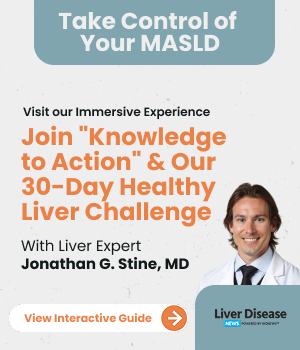FDA committee votes 10-1 against Ocaliva’s full approval for PBC
Members expressed concerned about therapy's safety, benefits

A U.S. Food and Drug Administration (FDA) advisory committee voted 10-1 that Ocaliva (obeticholic acid) doesn’t have a benefit-risk profile that would support its full approval for treating eligible adults with primary biliary cholangitis (PBC).
The overwhelmingly negative vote followed a seven-hour virtual public meeting Sept. 13 where the Gastrointestinal Drugs Advisory Committee (GIDAC) reviewed clinical trial data and heard the positive opinions and experiences of patients and physicians about using Ocaliva.
The therapy was conditionally approved by the FDA in 2016 as a second-line PBC treatment for certain adults who fail to adequately respond to or cannot tolerate ursodeoxycholic acid, a first-line therapy. A conditional, or accelerated, approval lets a therapy be marketed for a specific disease based on early clinical trial evidence that supports its potential. Conversion to a full approval for that indication requires additional trial data to confirm the therapy’s safety and efficacy.
Intercept Pharmaceuticals, the developer of Ocaliva, sought full approval this year. FDA advisory committees, made up of scientific experts who don’t work for the agency, independently review data to help it make regulatory decisions. The FDA will consider GIDAC’s vote when it makes its final decision, which is due by Oct. 15. The agency may choose to fully approve the therapy, maintain its conditional approval until there’s more clinical evidence, or remove it from the market entirely.
“We are disappointed in the outcome of [this] advisory committee meeting and believe the vote does not accurately recognize the clinical benefit of Ocaliva as an important second-line therapy for patients living with PBC,” Paul Nitschmann, MD, senior vice president of regulatory affairs at Intercept, said in a company press release.
Concerns about safety, benefits
The committee’s decision mirrors recent regulatory activity in the European Union (EU), where Ocaliva was also conditionally approved as a second-line PBC treatment in 2016.
Marketed in the EU by Advanz Pharma, the therapy’s marketing authorization was revoked by the European Commission this month based on a European Medicines Agency committee recommendation. Advanz has since secured a suspension of that decision, leaving Ocaliva available to patients for now.
In PBC, the tubes that carry the digestive fluid bile from the liver to the intestines become inflamed. Ocaliva modulates the activity of the farnesoid X receptor, a protein involved in a number of pathways implicated in the rare liver disease.
Ocaliva’s conditional approvals were based on data from the Phase 3 POISE clinical trial (NCT01473524) which indicated it was better than a placebo at normalizing blood biomarkers of liver damage.
Among the additional trial data reviewed by the committee were recently published results from the confirmatory Phase 3b/4 COBALT trial (NCT02308111), which investigated Ocaliva’s effects on long-term clinical outcomes against a placebo in 334 PBC patients.
COBALT data showed Ocaliva was associated with similar rates of death, liver transplant, and/or other serious liver-related events as a placebo, failing to meet its main goal. Another prespecified analysis that compared Ocaliva-treated patients in COBALT to an external group of untreated patients from a U.S. healthcare claims database showed a significant and clinically meaningful reduction, by 61%, in the rate of those events with Ocaliva, however.
The findings from the observational HEROES PBC study (NCT05292872), which indicated Ocaliva reduced the rates of death, liver transplant, and other serious liver-related outcomes in a real-world setting also were discussed.
After reviewing the available clinical data, the committee was asked whether they believed the clinical evidence collected since Ocaliva’s conditional approval verified its benefits on clinical outcomes in the currently eligible PBC patient population. In a 13-1 ruling, the committee voted that the data were not sufficient to support the therapy’s benefits.
When asked if Ocaliva’s benefit-risk profile was favorable in this patient population, 10 members voted no, one voted yes, and three abstained.
The members who voted against a favorable benefit-risk profile cited concerns about safety along with a lack of definitive evidence about the treatment’s benefits. Some noted they didn’t believe the real-world analyses were sufficient or rigorous enough to back the therapy’s benefits.
Intercept said it will continue to work collaboratively with the FDA on behalf of all PBC patients and expressed gratitude for the support of the patients and healthcare providers who participated in the meeting.








